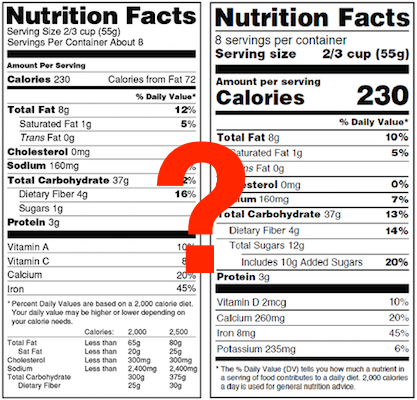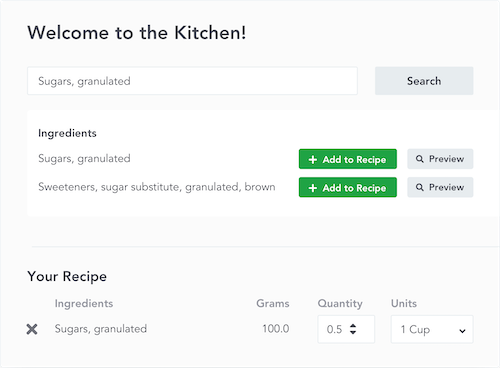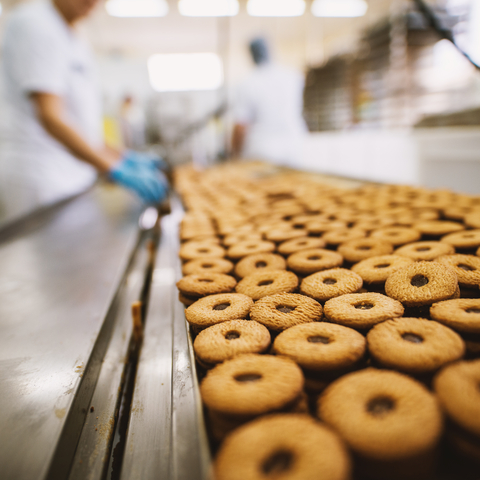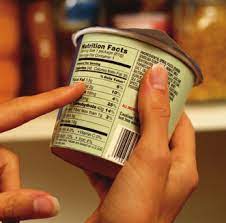A Guide to Home Kitchen, Wholesale, and Retail Food Licenses
Need help navigating the confusion of licensing? We're lucky to have a guest post from consultant Sari Kimbell to help you out.
Your Licensing Primer
I see many food business founders get too many licenses, not get all the licenses they need, not get the right testing, fail to put together a food safety plan, and confuse regulations. I am going to give you some easy ways to determine which licenses you need. First, let’s go over need-to-know vocabulary, agencies and license types.
Essential Vocabulary
- Packaged food for home consumption – this is the category you fall into for taxes and FDA regulations if you make a consumable product for eating or drinking that is sold sealed in a package (the other category is ready to eat, like a restaurant or food truck).
- Potentially Hazardous Food (PHF) – food that needs to be controlled for time and temperature. Think dairy (cheese, cream cheese, buttercream frosting) and acidified foods that don’t undergo a heat process to make them shelf stable (e.g. refrigerated salsa). Most meat products are also PHF except dehydrated meats like jerky.
- Not Potentially Hazardous Food (Non-PHF) – anything that is shelf stable and does not require refrigeration or heat to be considered safe.
- Sales Channels – the combination of places you plan to sell your product through. Examples are direct to consumer (DTC) like farmers' markets and online, or wholesale to a third party for resale.
- FDA – Food and Drug Administration, which oversees recalls, food safety, claims and product labels.
- USDA – Department of Agriculture;, which oversees any meat products in addition to the FDA's rules.
Types of Licenses
Home Kitchen Production
- In the last 10 years or so, more and more states are allowing certain foods to be made in a home kitchen and sold directly to the consumer (DTC).
- It is often referred to as Cottage Food, but some states may use different terminology like Food Freedom Act in Wyoming (note: Wyoming really falls into a category of its own as it allows so many more foods than most Cottage Food Act states).
- State-governed and often overseen by either your state’s department of health or a state university extension.
- If your food is allowed, then you can sell DTC at farmers' markets or in most cases online as long as it stays within state lines.
- There is typically a food safety test you need to pass administered in-person or online. This is usually the only “license” you will need to operate.
- pH testing may be required for your product.
- There may be specific labeling requirements unique to this license that are different than the FDA’s requirements.
Wholesale License
- Issued by your State’s Department of Heath, which is overseen by the FDA.
- Allows you to sell your packaged product (either in bulk, like a box of pastries, or as individually packaged items) to a third party who will resell it to the consumer.
- You may need to apply for multiple licenses as both a manufacturer and a warehouse.
- Requires a commercial kitchen for production; most producers use a commissary kitchen or a co-packer.
- Requires registration with the FDA as a manufacturer and a warehouse (if holding product elsewhere other than the commercial kitchen).
- Requires a food safety plan that may include a GMP (Good Manufacturing Practice) and/or HAACP (Hazard Analysis and Critical Control Points) plan.
- May allow you to also sell DTC at farmers' markets and online if your product is NOT potentially hazardous.
Retail Food License
- Issued by your County or Local Department of Health
- Typically for businesses who sell ready-to-eat food such as restaurants, caterers and food trucks.
- May need this retail food store license to sell packaged food for DTC channels depending on your product.
- If you ONLY ever plan to sell at a farmers' market, then you can probably opt for this license instead of wholesale, but check with your state to compare costs because it is usually less for a wholesale license.
How To Categorize your Business
Here is a guide to determine which licenses you will need and what additional regulation you need to follow:
Step One: Determine your sales channels
Where do you want to sell your product in the short to medium term? I usually ask clients to look at a one-year plan and a three-year plan.
- DTC – farmers markets, online, from your home, delivery
- Wholesale – coffee shops, restaurants, grocery stores, etc.
- Online only – a form of DTC but regulated differently than markets if you are ONLY doing online
- A mix of some or all of the above
Step Two: Put your product into a food safety category
- Not Potentially Hazardous
- Potentially Hazardous
- NPH with Meat
- PHF with Meat
Step Three: How will you sell your product?
- Pre-packaged and labeled
- Sell DTC as a custom purchase (e.g. open containers of cookies that you can mix and match)
- Online
- Wholesale
Once you know the combination for your business model from these three steps, you can start the process of figuring out which license(s) you will need.
Some Practical Examples
A jam business that only wants to sell DTC at markets and fulfill custom orders for customers online
In most states this would qualify as a Cottage Food business: the business would be limited to selling within the state where the product is produced.
The business could get a retail food or wholesale license instead; then the product would need to be produced in a commercial kitchen and meet the other requirements for this license type.
A BBQ sauce business that wants to sell DTC only online nationwide and at markets
Sauces are usually not allowed under Cottage Food, so a wholesale license or a retail license would be required. Testing may also be required.
A cupcake business that uses buttercream with real butter and wants to sell to coffee shops and DTC pre-boxed in packages
A wholesale license is needed for the coffee shop, and a retail food license is also needed because of the buttercream, which is PHF.
A baked goods business that makes meat and cheese filled pastries and wants to sell at farmers' markets and to coffee shops
The business needs a wholesale license for the coffee shop. Products must be made in a commercial kitchen that has a USDA inspector because of the meat. A retail food license is needed for farmers' markets because the products are considered PHF. If they were ONLY selling DTC, then the USDA inspection would not be required.
A pretzel business that wants to sell at a farmers' market only but with a hot cheese sauce
Without the hot cheese sauce, as long as the pretzel is pre-packaged, the business would most likely fall into cottage food or could get the less expensive wholesale license. Adding the hot cheese changes the product to “Ready to Eat” in most states, actually making it a mobile food like a food truck and requiring a retail food license (check for a mobile-specific license). If they wanted to sell cold cheese sauce in packages, then a Retail Food license would be needed.
A Last Word

I know this can be incredibly confusing. Believe me, I have seen hundreds of dollars wasted because the entrepreneur didn’t take the time to find out the correct answers. It can be difficult to do so because the agencies don’t really “talk” to each other, so you will get one answer in one place and a different one from another agency.
I recommend starting with your State health department and emailing or calling their hotline. I have found Colorado’s to be very helpful, and hopefully your state’s will be too. This also may be an area where you want to get expert help, especially executing the process all the way to the end with a food safety plan, testing, shelf life, FDA labels, packaging and more.
I offer a ton of free resources on my website and free videos on my YouTube Channel all about starting a food business.





